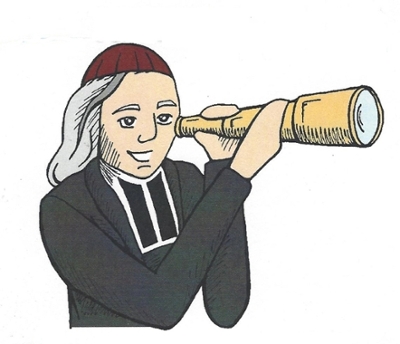Perspectives on Faith and Life Series
Learn a Different Kind of Lesson from Your Professors
Perspectives on Faith and Life is a discussion series that generates meaningful discussion between students like you and the faculty who work on campus. Topics vary between diverse religious, academic and social subjects and faith perspectives. Led by faculty or staff speakers, each session includes speaker time and small group table discussions over a catered meal.
Through this informal yet impactful experience, you can participate in conversation that educates you, stretches your comfort zone and gives you a chance to share individual ideas and beliefs in a comfortable environment. It’s a place for you to get to know the University’s faculty a little better, and in a whole new light.

Check Back for offerings for the 2022-23 academic year.
Session Outline
(Each session is adapted based on suggestions/desired format from presenter.)
6:30pm – Gathering
6:40pm – Grace & Dinner
7:10pm – Keynote Presenter
7:45pm – Small Group Discussion
8:20 pm – Large Group Questions/Discussion
8:30pm – Evaluations & Wrap upHistory and Mission
The Perspectives on Faith and Life Series began in 2005 as a collaborative effort between Student Development, Campus Ministry and the Program for Christian Leadership. The PFLS earned national recognition as an exemplary program by the Catholic Campus Ministry Association in 2010.
The Perspectives on Faith and Life Series (PFLS) is a discussion series designed to generate substantive discussion between students and faculty on select religious, academic, and social topics and their related faith perspectives. Led by faculty or staff speakers, each session includes speaker time and facilitated small group table discussions over a meal. Through this informal yet substantive experience, students will participate in meaning making conversation that educates, stretches their comfort zones, and provides opportunity to share individual ideas and beliefs in a controlled environment. Faculty will bring a faith perspective on themselves or their field of expertise to the table.
The PFLS is motivated by the goals of the 2006 University Strategic Plan, as well as the learning outcomes articulated in the “Habits of Inquiry and Reflection” that have been adopted for the purposes of university assessment. The PFLS contributes to enhancing the University of Dayton’s identity as a premier Catholic institution by encouraging creative, practical, and experiential integration of faith and reason. The Strategic Plan calls all members of the university community to “[f]ocus the entire university on the concept and practice of transformative education through integrating learning and living in community” (Strategic Plan Goal 1.1 Transformative Education). In response to these goals and desired learning outcomes, the PFLS seeks to:
- assist in building learning and living communities by offering programming that integrates academic inquiry with faith experiences by facilitating the exchange of ideas, experiences and reflection on meaning through conversation and dialogue among faculty, staff, and students.
- deepen the significance of conversation among undergraduate students by allowing faculty and staff to share experiences on how beliefs, ethics, and values can inform academic learning and living experiences.
- provide opportunities for students to build their skills in examining “their own faith commitments and also to participate intelligently and respectfully in dialogue with other traditions.”
- demonstrate and model the “values and skills necessary for learning, living, and working in communities of support and challenge”, including the ways in which people of varying faith perspectives can accept differences, resolve conflicts, and promote reconciliation.
- foster discussion and personal growth on hot-button life issues that students consistently encounter (i.e., sexuality, relationships, faith practices, beliefs, life choices, etc.) Serious inquiry into this range of topics and viewpoints on each will help students “develop and demonstrate intellectually informed, appreciative, and critical understanding of the cultures, histories, times, and places of multiple others, as marked by class, race, gender, ethnicity, religion, nationality, sexual orientation, and other manifestations of difference.”
- help undergraduates “develop and demonstrate habits of inquiry and reflection, informed by familiarity with Catholic Social Teaching, that equip them to evaluate critically and imaginatively the ethical, historical, social, political, technological, economic, and ecological challenges of their times in light of the past.”
- offer experiences consistent with the university’s strategic plan that embrace a commitment to learning and living in community, bridging the traditional boundaries that exist between the classroom and residence halls and are perceived to exist between personal beliefs and academic inquiry (i.e., faith and reason) by providing “opportunities for learning to live responsibly in community through residential life programs that engage all students in the practice of good citizenship.”
- enhance student commitment to coursework in their major field of study by developing a deeper sense of meaning for their intended course of study and their life’s work.
- foster within all units of the university (including education and health sciences, business, arts and sciences, engineering, residential education and student services), the integration of academics and faith experiences. The PFLS “enables students to connect theory with practice and that engages them in educational activities outside the classroom.”
